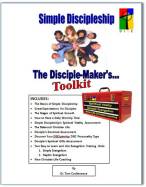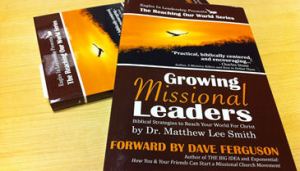FREE PDF DOWNLOAD OF A SAMPLE DISCIPLESHIP PLAN FROM SIMPLE DISCIPLESHIP.Click Here—> “DISCIPLESHIP PLAN“
THE FAITHFULNESS OF JEREMIAH
The prophet Jeremiah is known as the “weeping prophet” because of his expressed emotions in his second book titled Lamentations. The book of Jeremiah covers the ministry of the prophet as he called the nation of Israel to righteousness. He served the Lord for over 40 years faithfully proclaiming the word of the Lord but not once is it recorded that he inspired even one person to follow him and return to the Lord. Forty years! That’s 2080 Sabbath day messages and 14,610 days if he took no holidays and that also includes leap year calculations.
Many pastors perhaps reflect on Jeremiah and his seemingly unfruitful ministry of 40 years as they do their Monday morning quarterbacking and coaching virtual film playback of Sunday. Many walk a lonely path through the days week after week and some…year after year. Many are perplexed at the apparent deep faith of the prophet. We wonder at the faithfulness of Jeremiah as he ministered faithfully for 40 years as it seemed that none of his contemporaries listened…but what Jeremiah may or may not have been aware of was that people of faith would listen to him down through the ages through verses such as Jeremiah 29:11
For I know the thoughts that I think toward you, says the LORD, thoughts of peace and not of evil, to give you a future and a hope. (NKJV)
Indeed, through the pressures of day to day ministry it is difficult to maintain perspective on the eternal.
THE FAITHFULNESS OF PASTORS
Within church culture leaders of large and mega churches are celebrated as icons of successful ministry, as it appears that they have mastered the pressures of ministry, perhaps better than Jeremiah though to their credit most would not make such a claim. The great ministry leaders are visible and their teachings are highly desired among the many struggling pastors. There are many un-named pastors and ministry leaders who serve almost invisibly and receiving little credit in this life even though they are good leaders, loving pastors, and great preachers. They are my heroes!
Granted that there are a few lax and lazy church leaders who may be contended for their church to go for three years with no baptisms but these are few and far between. Our church culture seems to assume that every pastor of a small struggling church is disobedient, subpar, or flawed in some way. Perhaps they are servants of the Lord serving as Jeremiahs to their current generation. They weep for their sheep, they pray and cry for spiritual awakening among their people, they hunger for signs that someone is listening. However, privately they suffer from depression, discouragement, and despair. There are many reasons pastors feel that they might want to quit (It’s Monday and Your Pastor wants to Quit), notwithstanding the constant feeling of ineffectiveness.
If you are a Jeremiah Pastor, take heart. Remain faithful and the Lord will bless you in his time. Find another pastor with whom to pray. If you can, obtain a ministry coach who may be able to help you improve as you use this time as preparation for a more fruitful time later. You might consider joining or starting a pastor’s peer group for prayer and group study where you will discover that you are not struggling alone.
If you are a pastor who is experiencing the success in ministry and have many followers, there are some things you can do to help the Jeremiah Pastors. First, remember the more humble roots of your beginning in ministry. Pray for the Lord to reveal to you a pastor that you will offer prayer and mentoring/coaching. It is discouraging for lonely leaders to seek out a coach/mentor and be turned down. Find someone who genuinely NEEDS and will respond to your encouragement and spend some time investing in them. By all means pray for the Jeremiah Pastors and resist the subtle put-downs of “small church” pastors.
10 WAYS TO ENCOURAGE PASTORS
- Offer a special word of encouragement at a time other than as you walk out the church door on Sunday.
- Be sure to include the pastor’s spouse and children as you encourage. If a pastor is experiencing discouragement and depression, his wife is also bearing the burden.
- Be sure that expressions are authentic. One church gave the pastor a gift that by necessity included his name but the middle initial was incorrect. Another church celebrated the pastor and his wife’s 25th wedding anniversary but put the wrong date on the gift silver platter. These mistakes and lack of attention to detail can hurt more than they help.
- Wake up during the Sunday sermon. Seeing people sleeping during a sermon is discouraging and it is rude. Maybe the pastor is not a Billy Graham but come on!
- Apply the biblical principles the pastor teaches and praise God while honoring your pastor for his teaching ministry. The response of the congregation may begin growth which will do the most to encourage the pastor.
- After a significant time of service, lead your church to provide a real vacation or even a sabbatical for study and rest.
- Celebrate major accomplishments of your pastor. One pastor’s achievement of a doctoral degree went almost unnoticed and for another a book publication was just another day to the congregation.
- Take care of your pastor and his family. Does he receive regular increases in salary? Does the church contribute to his retirement fund? Does the church provide a self-employment tax offset? Does the church provide for significant reimbursement for ministry expenses.
- Pray for your pastor and his family. No, this is not an obligatory item on the list. Suggest to the elders and deacons that they have a special prayer for the pastor and his family. Do this as a surprise during a worship service.
- What is your pastor’s Love Language?
- Receiving gifts- Give a spontaneous gift card for Starbucks or a bookstore; on major anniversaries give something significant.
- Words of affirmation- Creatively encourage the one who encourages you
- Spend time with me- Serve side-by-side on visitation and mission projects
- Acts of service- Take some of the load of ministry or do something to help with something at the pastor’s home. Of course you will need to clear this perhaps through the pastor’s family…things such as yard work, maintenance, and so on.
- Physical touch- This one may be complicated but handshakes, appropriate hugs, and other expressions of appreciation will suffice.
The Jeremiahs serving our churches are some of the hardest working and faithful leaders among us. Contrary to popular world opinion and among some high-profile leaders, small church leaders are often good leaders, effective preachers, and loving pastors. Jeremiah pastors are truly heroes.
Add to the list: What are some additional ways to honor and encourage the unsung Jeremiah pastors?
Leader4Leaders Blessings!
Dr. Tom Cocklereece
——————–
Simple Discipleship: How to Make Disciples in the 21st Century was published by Church Smart Resources. To learn more about Simple Discipleship and to order the book, follow the link below:
http://www.simplediscipleship.com
——————–
Dr. Tom Cocklereece is Author of “Simple Discipleship,” and a contributing writer forwww.Linked2Leadership.com Blogazine. He is a pastor, leadership coach, and ministry development specialist.











